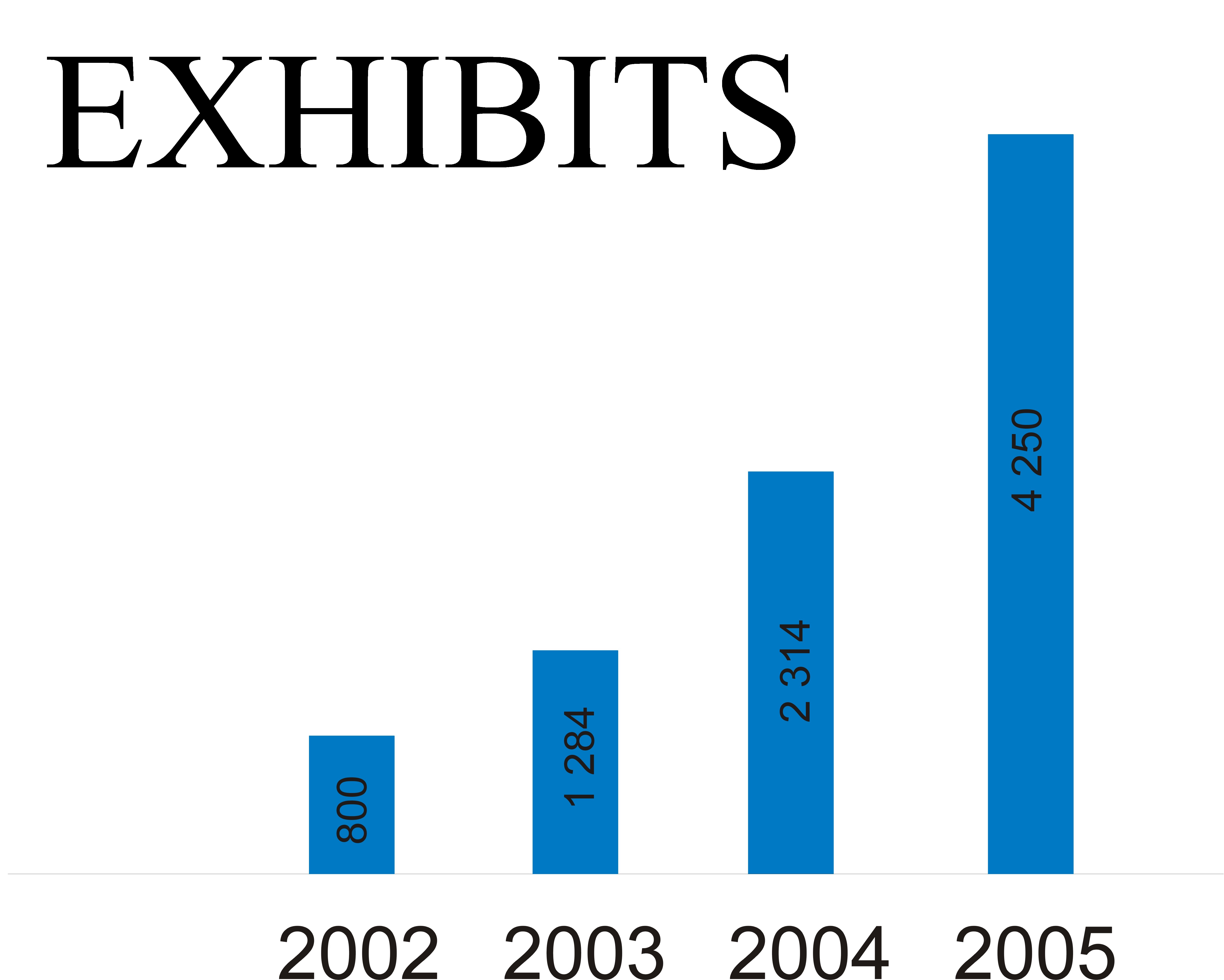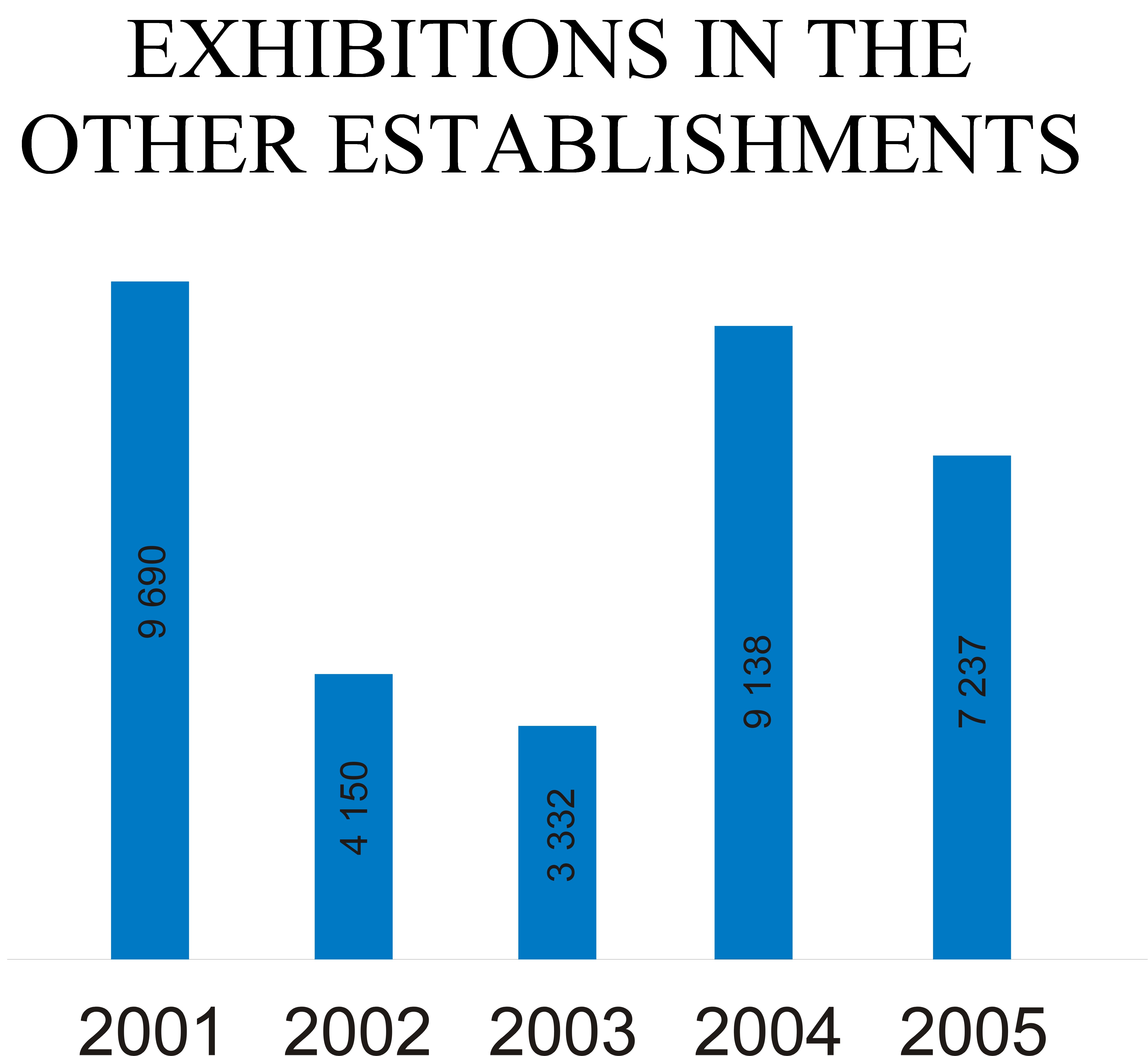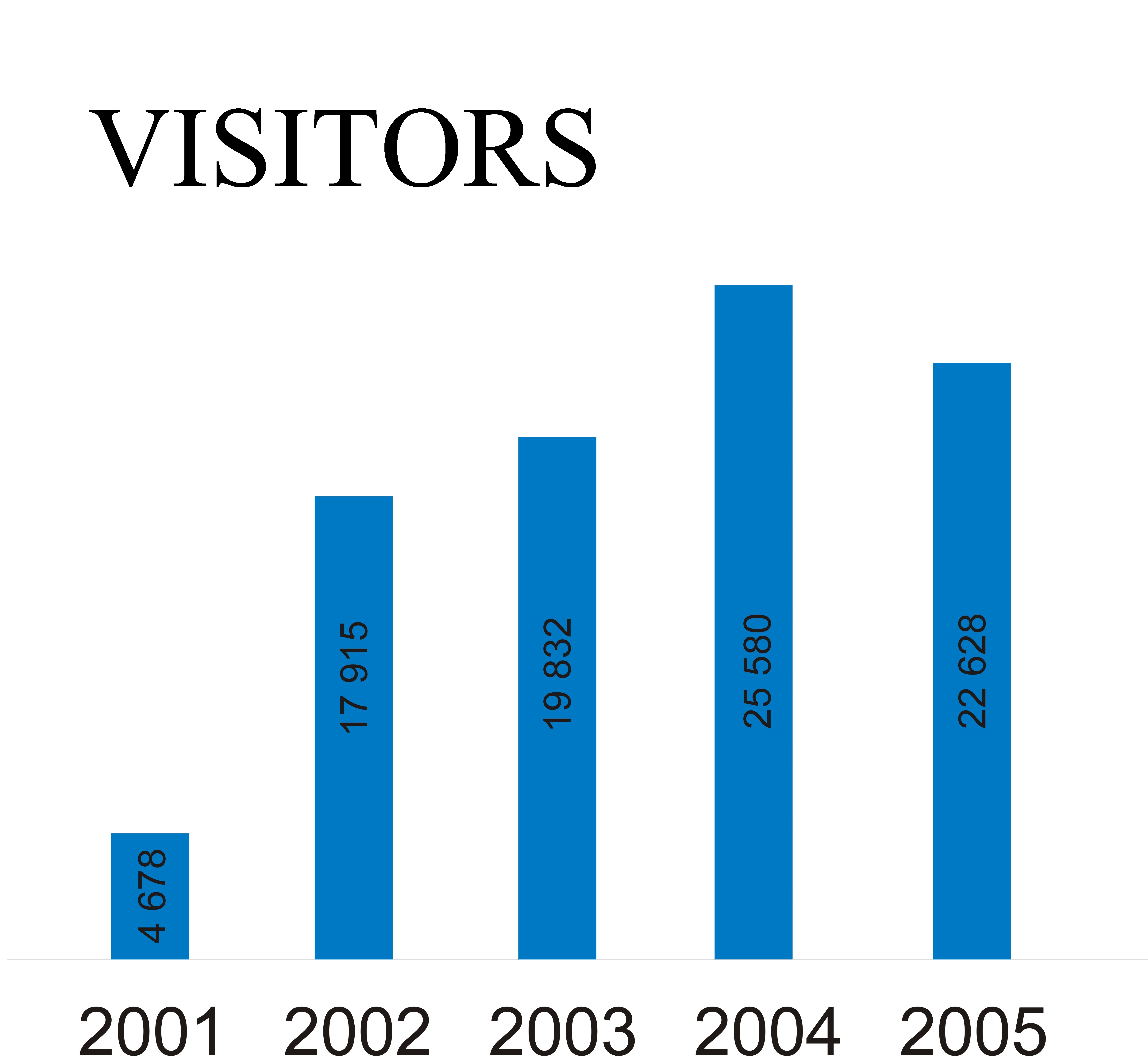The time of analysis
THE ANALYSIS OF THE MUSEUM’S STATE AFTER 5 YEARS OF ACTIVITY
2001 – 2005
After 5 years of activity of the Municipal Museum in Żory it’s substantive activity underwent analysis in terms of fulfilling statements of Law concerning museums from the 21st of November, 1996, but on the other hand in terms of the Strategy of Town’s development and related to it – the Museum in the next, couple of years. 5 years of work seem to be enough authoritative to attempt to verify and devise reliable analyses of activity.
Żory’s inhabitants have noticed 3 tendencies in terms of existence of the Museum:
- this museum is supposed to be closed, because it reproduces Municipal Cultural Centre’s tasks; honestly it is a „private” institution of principal Lucjan Buchalik. This opinion dissapeared with time;
- the Department of History and Region’s Culture is supposed to be the only one promoted, beacuse from the town’s point of view it is the most important thing and the Department of non-European Culture should be only a small addition, using the smallest amount of money possible. This kind of opinion appears because of lack of information about activity of both the departments;
- the Department of non-European Culture is clear-cut determinant of the Municipal Museum’s type, which features it from the other, similar museums, raising the Museum’s value in terms of own ad, but the town’s ad as well. It should be noticed that a siginificant position in the structure of income are external exhibitions organised in different Museums and cultural centres in the country, which are realised by the Department of non-European Culture. This whole system of intensification of activity gives us also one, very important benefit, which is often forgotten – positive promotion of Żory. A considerable element in terms of creation town’s own, modern and open image.
Analysing changes, which had place in Żory inhabitant’s minds during Museum’s 5 years of activity, it is supposed to be emphasised that at a town’s forum, the Museum is considered positively as the Department of History and Region’s Culture. Such a statement seems to be correct – at this forum, the Department of History and Region’s Culture should take the weight of responsibility for the Museum’s activites. Besides municipal forum, in our country the Department of non-European Cultures is also recognisable for its collections but also in terms of external exhibitions ordered by other institutions in our country. This shows us a balance, which must be between those two branches and every each of them is significant in terms of whole strategy of work of the Municipal Museum.
According to the law, a museum is a cultural institution, which basic tasks are clearly determined. From outgoing experience we can see that a typical Żory’s inhabitant concerns a museum as an institution collecting exhibits, which sometimes presents them, organises exhibitions and realises educational activity. This matter makes us redefine certain basis, draw a conclusion and attempt to verify it by various ways and methods.
Verification of activities will occur only basing on analysis of the Museum’s activity in terms of basic and complementary activities. It should be taken into account, that a basis of activity (basing on the law) can not and should not be changed.
Basic tasks realised in terms of the Museum’s activity are not visible outside during its daily work. We should take into account that raising museum’s collection classifies the Municipal Museum at the top of polish ethnographic museums, which are developing very intensively if it comes to African-themed collections. Very important aspects of gaining new collections are used methods, as well as finances.
In terms of development of the Municipal Museum, it should be noticed that there is a presence of two substantive branches gaining exhibits independently from each other. Notice consistent financial support from external sources (sponsors), which are basically a foundation of purchase of an exhibits from the Department of non-European Culture’s’ collection. Very serious problem, unregulated yet are storage rooms for both of the Museum’s Departments. Outgoing, temporary rooms are insufficient. The Museum tries to keep collected exhibits according to basic requirements of keeping exhibits. The new objects of the Department of non-European Branch are consistently in quarantine in fumigation chamber, protecting exhibits from insects.
Collected exhibits are presented only partially on our 3 permanent exhibitions, which is pretty normal according to space abilities and exhibition’s composition. Collections kept in storage room are those borrowed for the other museums in this country. This way of demeanour in terms of collection is a perfect way to increase income, but as a consequence – expenses for preserving, which are obligatory.
A prime indicator of efectiveness of a museum’s work is an amount of people visiting this place. However, in terms of a museum, which is in a town without any museum traditions, with a quite complicated demographical structure, the amount of visitors is unfortunately limited. Statistics are getting better because of visitors coming for our temporary exhibitions - especially those presented at other institutions.
Statistics of visits is connected with an activities acompanying basic Museum’s tasks – educational activity. An analysis of educational diagram shows us an effect of introducing of project system as a permanent element of substantive plan of the Department of non-European Cultures.
Such an approach significantly influences overall statistics of visiting and their type (groups are coming back for another classes), but first of all – the quality of knowledge passed in terms of project’s activities.
During realisation of our projects concerning non-European cultures, the Museum cooperates with embassy and representatives of foreing countries. Educational projects, publishings are the effects of such a cooperation, which should be the Library of Young Anthropologist.
An important element of those projects is learning of foreign languages, which is held in a really curious way in our museum.
The Department of non-European Cultures has cooperated with MSZ and Fundation „Education for Democracy” in terms of training and cooperation with non-governmental organistations concerning developing education.
Every year, the Museum arranges a scientific-exploratory expeditions to Western Africa and their aim is not only to collect exhibits for Museum, but also a scientific documentation, which is a foundation for works for substantive workers of the Department of non-European Cultures. At the same time – the Museum’s interests into non-European cultures are expanded with some new exploratory areas.



